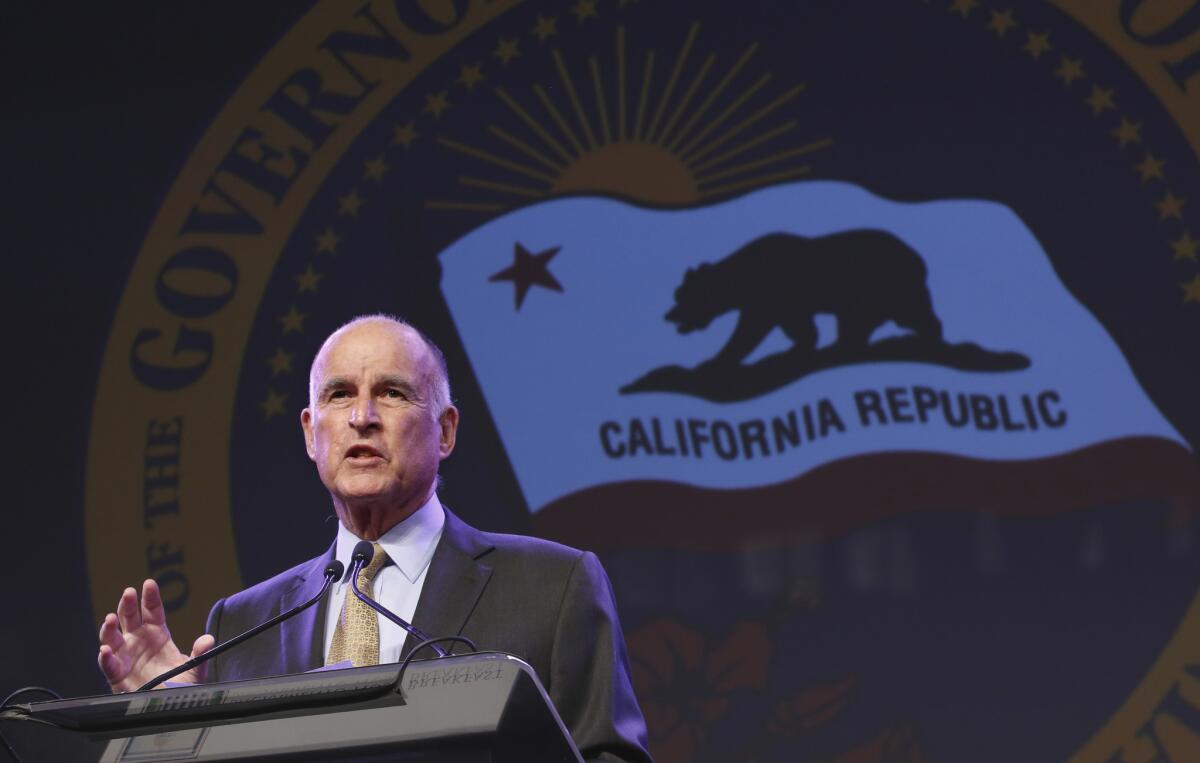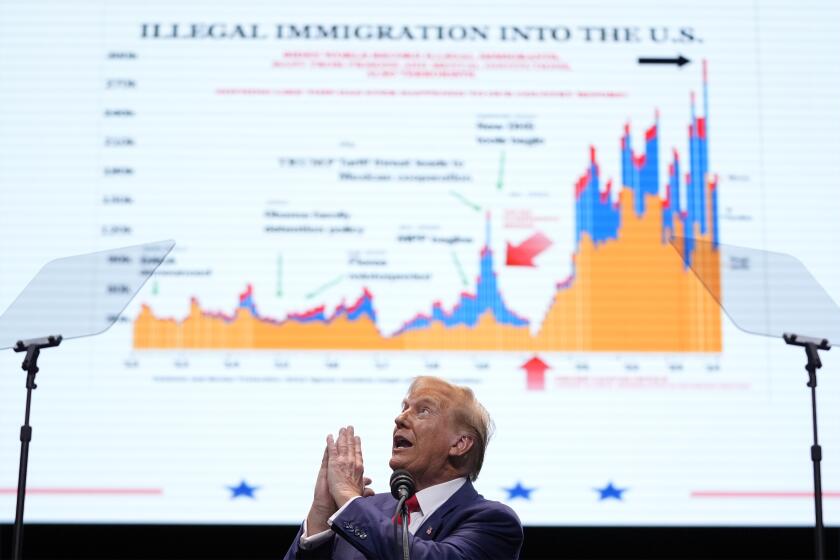Editorial: Jerry Brown should veto California’s misleading ‘Citizens United’ referendum

California is renowned for the extent to which its citizens are allowed to make law at the ballot box. But heading for Gov. Jerry Brown’s desk at the moment is a proposal that would needlessly clutter the November ballot. It is a a purely advisory question, one whose approval by the voters would have absolutely no practical effect. The governor should use his veto power to block this empty exercise.
SB 254 is called the “Overturn Citizens United Act,” a reference to a wrongheaded 2010 Supreme Court decision holding that corporations have a 1st Amendment right to spend unlimited amounts on election-related advocacy.
But the name of the bill is misleading: It would do nothing to overturn Citizens United. Rather, if signed by the governor and placed on the November ballot, it would allow voters to express an opinion – and that is all it would be – about whether elected officials should use their powers to try to reverse the decision. Using their powers would presumably mean proposing and ultimately voting for an amendment to the U.S. Constitution.
This is the Legislature’s second attempt to place an advisory Citizens United referendum before the voters. A similar question was removed from the November 2014 ballot after it was challenged in the state Supreme Court. Eventually the court ruled that such advisory questions were permissible.
But “permissible” doesn’t mean “useful.” SB 254 describes its Citizens United question as “a voter instruction,” but state legislators and members of Congress would be as free to disregard its results as they are to disregard any other advice about how they should do their jobs. It’s more accurate to describe the proposed referendum as a publicly financed opinion poll.
But what’s the harm of using the election machinery to conduct such a poll? Gov. Brown already put his finger on the problem when he noted, with regard to the measure that was challenged in 2014, that “we should not make it a habit to clutter our ballots with nonbinding measures, as citizens rightfully assume that their votes are meant to have legal effect.”
Precisely. In November, voters may be asked to consider as many as 20 ballot measures. Brown should have the courage of his convictions and veto SB 254. The veto message is already written.
Follow the Opinion section on Twitter @latimesopinionand Facebook
More to Read
A cure for the common opinion
Get thought-provoking perspectives with our weekly newsletter.
You may occasionally receive promotional content from the Los Angeles Times.










